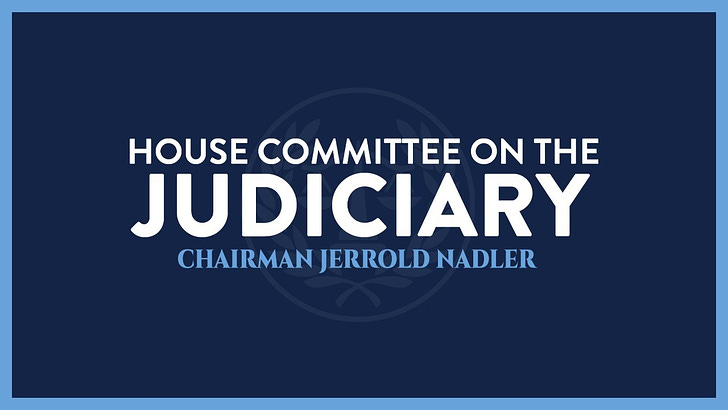Welcome to BIG, a newsletter on the politics of monopoly power. If you’d like to sign up to receive issues over email, you can do so here.
Last week, the House Antitrust Subcommittee had a hearing on suggested changes to the antitrust laws, part of a series of hearings that will likely result in a significant overhaul in how the state and corporate power relate to one another. The hearing illustrated the problems that the GOP coalition is having meshing its increasingly anti-monopolist conservative base with its big tech supportive corporate wing. This tension became evident watching Republican FTC Commissioner Noah Phillips get grilled, not so much by Democrats, but by Republicans.
An increasingly significant concern for the right is big tech firms using their power to censor conservatives, as they did when they removed Donald Trump from most major platforms after the Capitol Hill riot. Conservative Republican leader Jim Jordan, who is the highest ranking member on the full Judiciary Committee, is extremely deferential to corporate power, but he is first and foremost a conservative movement leader. So on the one hand, he generally wants to help promote his vision of a free market, but on the other, he cannot abide dominant firms censoring his political faction. In this hearing, he was seeking some sort of reconciliation of these two goals, and asked his Republican ally, Noah Phillips, for help.
Phillips is a corporate Republican, and in this case, he simply had nothing to offer. In a back and forth, he told Jordan that censorship was not a monopoly concern. He also gave no ground on Section 230 of the Communications Decency Act, which gives a liability shield to tech platforms, and is often offered by Republicans as a way to address censorship concerns without making antitrust laws more powerful.
Jordan asked, “If we're not going to use antitrust to deal with censorship and you are reluctant to talk about Section 230, what's the answer?”
Phillips responded, "I'm afraid I don't have a good answer."
Phillips couldn’t respond with anything, because the only way he could have discussed addressing big tech censorship was by acknowledging that the state should be structuring markets deliberately on behalf of some sort of common good. And that concession would crush his ability to fight against state power and on behalf of dominant firms. Jordan needed something Phillips couldn’t offer.
Movements don’t end when their ideas prove to be wrong, they end when solving one political problem causes another, bigger one for their coalition. And that’s why libertarianism is falling apart.
Related posts:
The Federalist Society, Monopoly and a Conservative Intellectual Collapse
The New Populist Right Imagines a Post-Pandemic America
Will Trump's Supreme Court Destroy Trump's Google Case?
The Google Suit: We’re All Anti-Monopolists Now
Trump's Surprising Embrace of Industrial Policy to Fight China


Libertarians do have a problem dealing with monopoly and oligopoly. They will claim that all such cases arise from government intervention and protection, and in many cases, they are right or at least partly right. But it's not whole picture by any means.
As for the conservative movement, there was an attempt in the early 80s to eliminate all antitrust enforcement as redundant. Even many conservatives were uncomfortable with this, because people back then remembered why antitrust arose in the first place. So the criteria were narrowed to consumer welfare alone, and antitrust was saved, in a truncated form. After all, one of the biggest antitrust cases of the last century was the AT&T breakup, which happened under Reagan. Conservatives saw that as having a clear consumer benefit, and so it did.
Consumer benefit as a criterion is fine, but in retrospect, it was clearly too narrow, which is why Matt is writing his pieces here. There was the Microsoft case of the first Clinton term, but that was the last major antitrust case until very recently. The big collapse of antitrust happened under, not Reagan, contrary to myth, but under Clinton, specifically in his second term, when the alliance of the Democratic leadership and Wall Street solidified. It remained there all the way through the end of Obama's second term.
Even after the haze of neoliberal globalization, any decent economics text will have a chapter on the classic monopoly characteristics and how monopolies seriously distort not only markets, but society and politics as well. They are price makers, not price takers; they respond to average cost, not marginal cost; they restrict output at higher prices than the market-clearing situation; if monopsonists of labor as well, they hire less labor at a lower wage than the market-clearing situation; and finally, they end up throttling innovation and develop undue political and social influence. Conservatives see the last item and (some like George Gilder and Peter Thiel) see the second-to-last clearly.
But it's the whole picture that needs to be seen to fully assess the reality. We might say that no side has a monopoly on the truth here :)
These aren't Libertarians, they're lolbertarians who are cover for crony corporatism. Anyone claiming this title who isn't first & foremost all about sound money or has read Mises / Rothbard is not a Libertarian, they're calling themselves that to deceive because monopolies can't exist with sound money. They're incompatible, its the flipside of the coin for how wokeness is "Progressivism" but is just cover for anti-corporate policies. Key distinction Matt, the Ron Paul types are part of the solution not the problem.